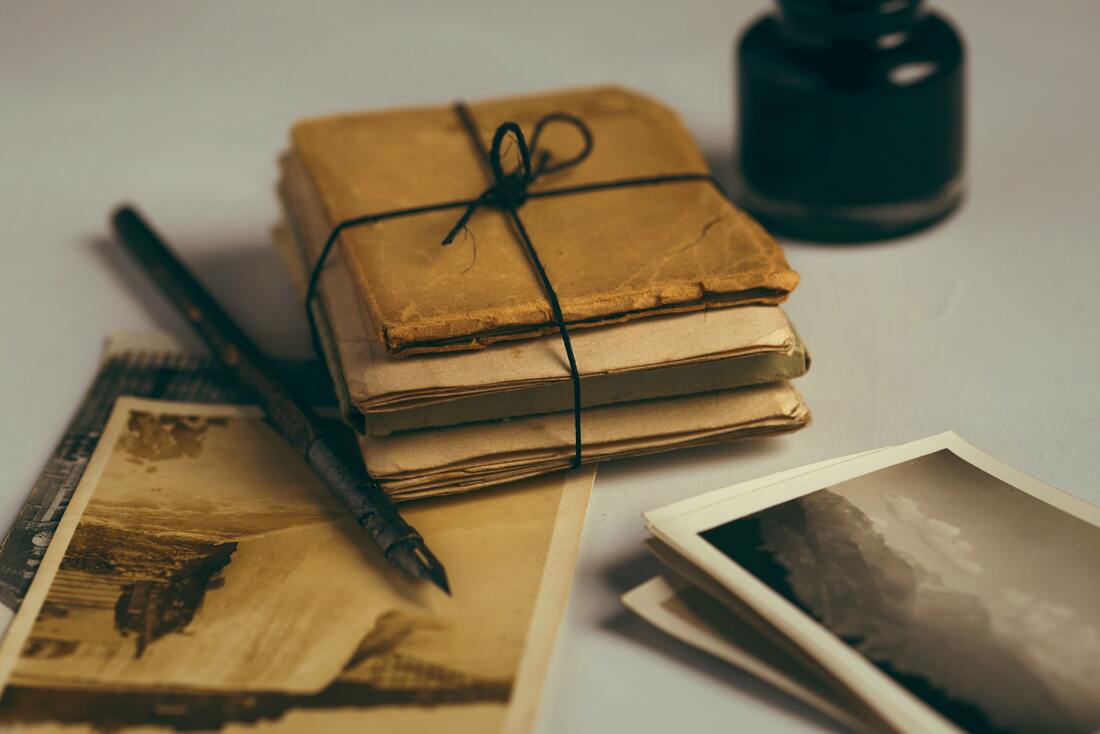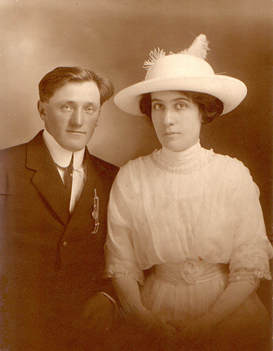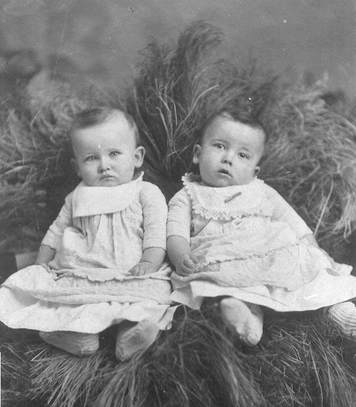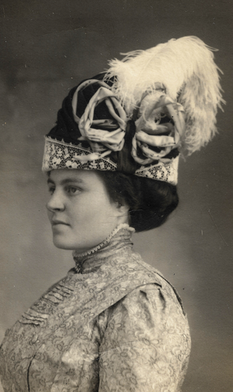 Photo by Joanna Kosinska on Unsplash Do people send postcards these days when they are on vacation? I don’t but I know I still buy a few to remember the scenic beauty of a place and to use in my photo album. Most people probably send a text or email home or post items on Facebook. And what about the rare art of letter writing? Remember how fun it was to receive a long letter from a friend or relative with all the news? Now we use text, emails, or cell phones to stay in touch. Perhaps these help us to be diligent in our correspondence. Regardless of how our ancestors, friends and family kept/keep in touch, we need to think about capturing that information was we write our family histories. Let’s look As part of a scanning effort, I’ve been looking at old letters from aunts & uncles, great grandparents as well as cards and notes from family celebrations of anniversaries. While we all know that we can’t keep everything that comes into our home, we can copy and digitized items with a minimum of effort. As you go back and review correspondence, you will be surprised and what tidbits of detail might help you with your family history.
One of my treasured letters is from a relative who was in Mayo Clinic in Rochester MN in the 1940s. He talks about his illness and how things are going and visits from a neighbor. This letter is especially poignant knowing that he came home to his family shortly after that and died six months later from his illness. But in this letter, you can hear his voice telling family not to worry or how to handle something with the bank. This is something that you cannot get from an obituary or a death record or even a county history. Another relative wrote to her sisters while she was in the hospital. It was the last letter that this twenty-year-old wrote and they received it after she passed away. It was treasured by those sisters for many years until it was passed on to me. Her voice rings out with the optimism of youth in difficult circumstances. Not all the correspondence is sad, but they often involve big life events. One family member has a series of postcards from the 1910s that chronicles the courtship of her great grandparents. I’ve often wondered if the local postmaster was able to predict engagements by the flurry of missives between couples. Even events that happened forty or fifty years ago are recorded with cards of congratulations, letters to siblings and parents and grandparents. Letters from a family member in the service might help us understand what they were experiencing or perhaps they sheltered their families from the horrors of war. And today, you might want to capture and save emails that reflect important events in your life or your loved ones. Perhaps related to a holiday or wedding or even how people are coping with Covid. Here are a few resources of interest and inspiration: Dear Mother: Family Letters and Your Genealogy (genealogybank.com) Past Voices: Letters Home – Brought to you by OliveTreeGenealogy.com. Find ancestors in Civil War letters, War of 1812 letters, Revolutionary War letters. Search your ancestry and find your genealogy. Find your roots and read your ancestors' words. Discover your origins in old letters as ancestors tell their stories and details of family history. Learn how to preserve old documents, family treasures and heirlooms. Debby's Family Genealogy Blog: PUBLISHED Carrie’s Letters: A Glimpse Into Rural Family Life Baiting Hollow, NY (1880-1910) (debbysfamilygenealogyblog.blogspot.com) Preserving Old Family Letters - MyHeritage Blog Writing a Non-Boring Family History (writerswrite.com) Take some time to find, sort and preserve those family letters, postcards and notes for future generations. They will be a rich resource for you as you write your family history. Happy letter reading!
0 Comments
Leave a Reply. |
AuthorWith a lifelong passion for genealogy and history, the author enjoys the opportunity to share genealogy tidbits, inspiring others to research and write their family story. Archives
July 2024
Categories |



 RSS Feed
RSS Feed